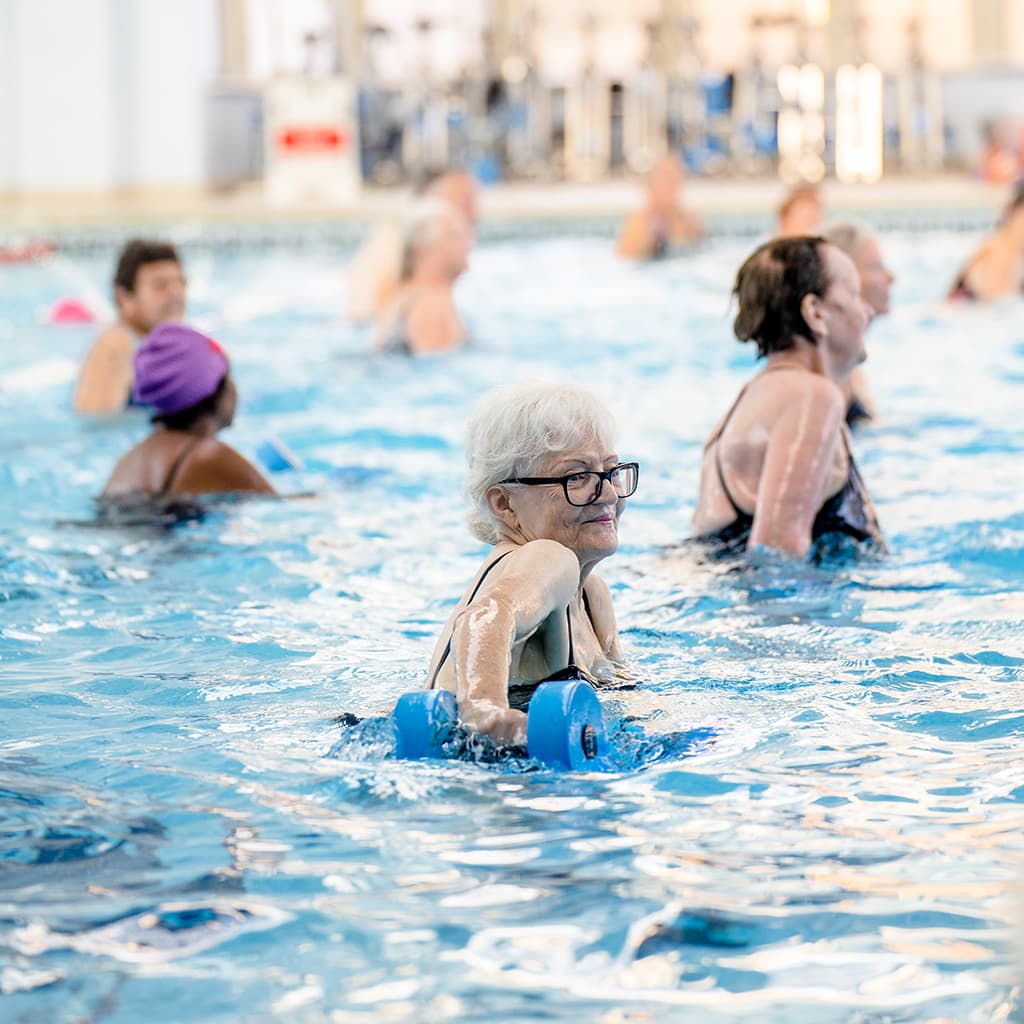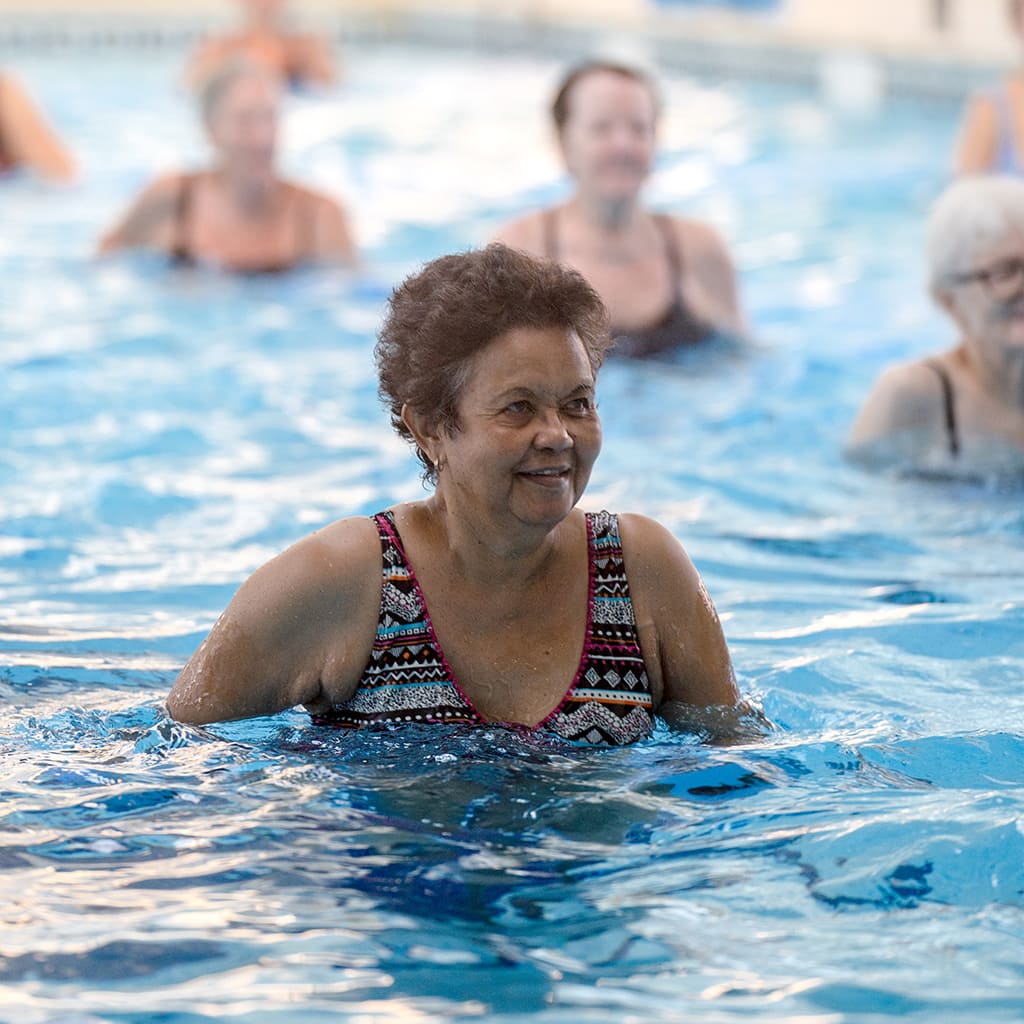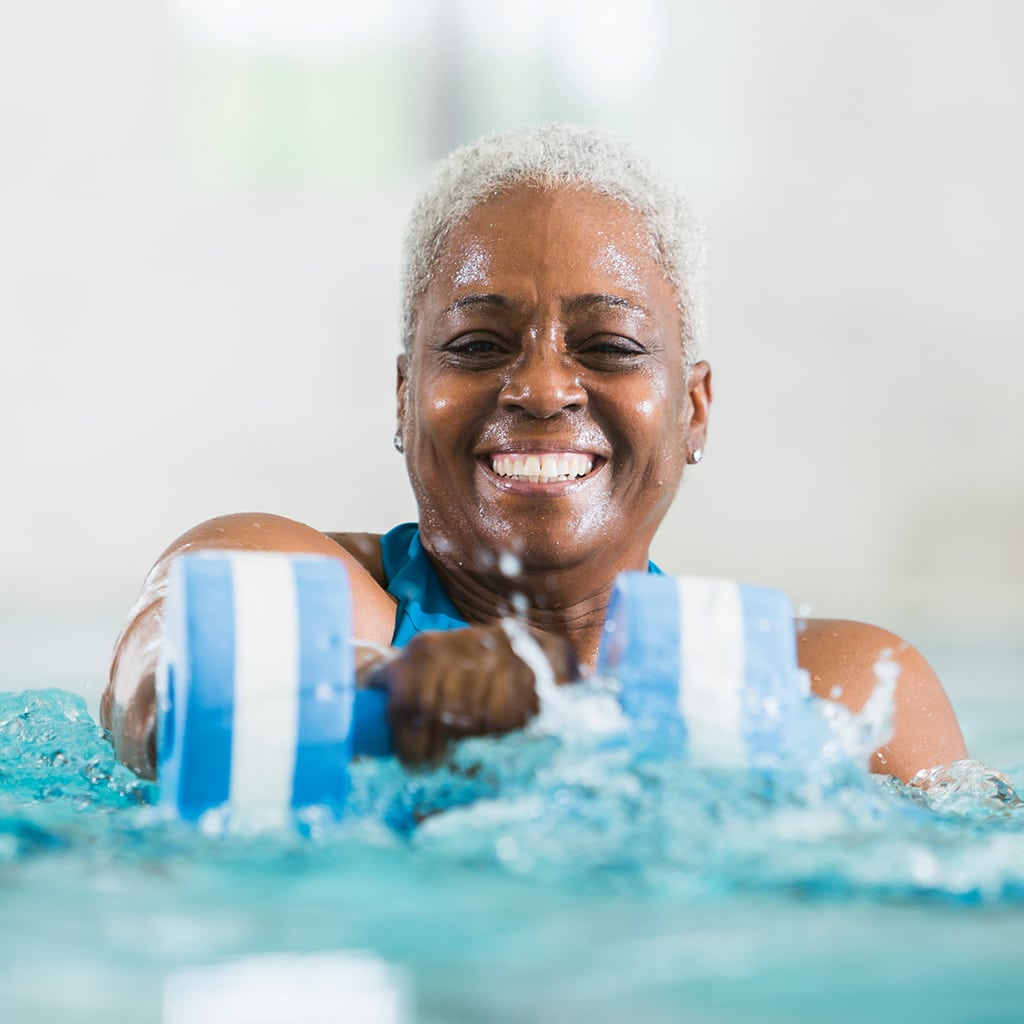SWIMMING & SAUNA
Members love our 25 metre heated swimming pool.
Whether you’re a triathlete training for your next race…. Want an energising swim to get your day off to the best start … or you’re splashing around with your little ones our swim timetable find time for every body. Swimming is always great exercise as well as a place to relax and unwind.
As you’d expect from Chertsey’s community club, we operate a full swimming lessons programme for adults and children and have taught thousands of local children to swim over the years!
Some of our longest serving members wouldn’t miss our regular Aqua classes… and, of course, the coffee and a chat afterwards!




Sauna
Welcome to our retreat for relaxation and well-being – our luxurious sauna! Discover the benefits including;
- Stress Relief:. The soothing heat promotes the release of endorphins, reducing stress and leaving you with a profound sense of tranquility.
- Detoxification: Sweating is one of the body’s most natural ways to eliminate toxins.
- Muscle Relaxation: Experience the therapeutic effects of heat as it penetrates deep into your muscles, relieving tension and soothing aches and pains.
- Improved Circulation: The heat from the sauna causes blood vessels to dilate, promoting better circulation. Enhanced blood flow carries oxygen and nutrients to your cells, aiding in the repair of damaged tissues.
- Skin Rejuvenation: Saunas stimulate blood flow to the skin, promoting a healthy glow. The increased circulation also encourages the production of collagen, reducing the appearance of fine lines and promoting a more youthful complexion.

WANT TO KNOW MORE?
To find out more about the Club or to get your membership started, please fill in the form and we’ll be in touch

